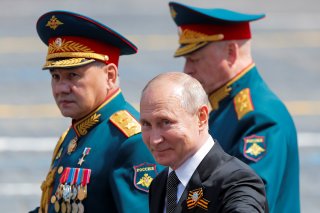Why America Should Fear a Russia-China Alliance
Foreign policy is the art of the possible, distinguishing between reality and fantasy. American policymakers need to recognize that Russia has separate interests that it will pursue irrespective of Washington’s wishes.
Even among those who prefer better relations between Washington and Moscow, there is skepticism that they are attainable. For instance, Lyle Goldstein of the U.S. Naval War College has argued that “China and Russia have a very similar worldview right now and they’re supporting each other pretty strongly. I don’t see a lot of cracks.” Meanwhile, analysts Andrea Kendall-Taylor, David Shullman, and Dan McCormick doubted “efforts to lure Russia away from China would be successful . . . because Putin views the United States and not Beijing as a threat to his hold on power.” Katz suggested that “Putin, it appears, may actually prefer a state of hostility with the United States and the West, given his fears that friendly relations are more likely to undermine him.”
Although powerful forces are pushing China and Russia together, differences between them are real. The PRC has used its greater economic strength to win influence in Central Asia, once part of the Soviet Union. Moreover, Imperial China lost territory to Imperial Russia, including Vladivostok, which some Chinese imagine recovering. Moscow is likely to be increasingly dissatisfied playing number two to Beijing, which seems inevitable as the economic gap between them grows.
Nevertheless, punitive allied actions are inflaming the two governments’ current hostility toward and fear of America. The United States should work to eliminate or moderate factors pushing them together. There is no guarantee of success, but Washington should play the long game.
Foreign policy is the art of the possible, distinguishing between reality and fantasy. American policymakers need to recognize that Russia has separate interests that it will pursue irrespective of Washington’s wishes. Despite near-hysteria among U.S. policymakers who cannot understand foreign rejection of American hegemony, most contested issues—such as Syria and Crimea—are not particularly important, let alone vital, to the United States. In any case, Russia has repeatedly demonstrated that it will not surrender to Washington.
The United States and Europe should seek a civil, cooperative relationship with Russia. Doing so would be the best way to counter today’s informal alliance between Moscow and Beijing. But that requires America to compromise on its own outsize geopolitical ambitions. This approach would do far more to enhance American security than launching another Cold War.
Doug Bandow is a senior fellow at the Cato Institute. A former special assistant to President Ronald Reagan, he is author of Foreign Follies: America’s New Global Empire.
Image: Reuters

